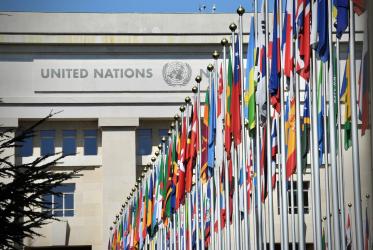The World Association for Christian Communication – Europe Region (WACC Europe) is embarking on a one-year project to identify and promote strategies to counter online hate speech focused on refugees and migrants.
“Communication Rights and Refugees in Europe: Breaking Down the Social Media Divides” will explore existing attempts to address hate speech and cultural and political divisions online, particularly in relation to migrants and migration, and assess the approaches and tools that are most effective.
The project’s focus on social media comes out of previous media monitoring, conducted in seven European countries by WACC Europe and the CCME, that revealed general patters of invisibility and misrepresentation and highlighted the need for direct inclusion of the voices and opinions of refugees and migrants in stories about them.
Results from the previous media monitoring were published in a study entitled “Refugees Reporting.”
Stephen Brown, president of WACC Europe, added, “Our ‘Refugees Reporting’ research focused on news media but also highlighted that much of the extreme discourse and disinformation around migration occurs in largely uncontrolled social media platforms. Through the new project, we hope to identify good practices and effective tools and strategies for individuals and organizations to promote ethical journalism and inclusive approaches.”
If left unchecked, hate speech can ultimately augment injustice and even skew policy decisions, said Torsten Moritz, general secretary of the Churches’ Commission for Migrants in Europe (CCME). "In discussing refugees and migrants issues, prejudice and - even more extremely - hate speech often shape the debate and thus also public perception and, in the end, even public policy,” he said. “It is thus essential that we understand where it comes from, how it is shaped and spread, and then of course how to combat it.”
Social media needs to be studied, said Moritz. “Social media is at the forefront of creating and addressing hate speech and yet often not examined enough,” said Moritz. “This project is therefore both timely and vital.”
The one-year project, supported by the Otto per Mille Foundation of the Waldensian Church of Italy, runs from December 2018 through November 2019.
WACC press release about “Refugees Reporting”
WCC Executive Committee Statement on People on the Move: Migrants and Refugees






